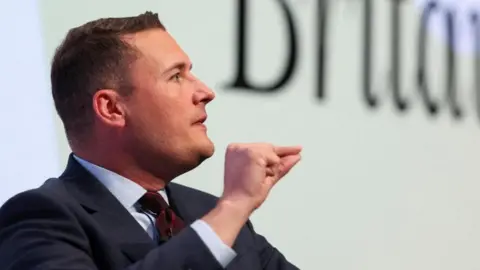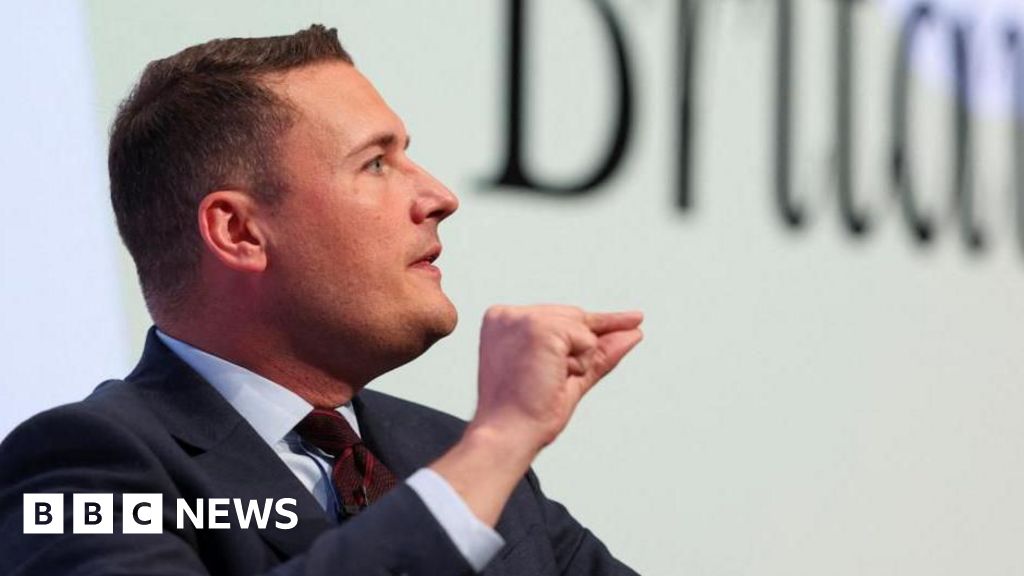By Michelle Roberts, Digital health editor, BBC News
 Reuters
ReutersFace-to-face talks between the new health secretary and junior doctors unhappy over pay have begun.
Wes Streeting says the government cannot afford or commit to the 35% rise the doctors want but hopes to end the dispute.
But there is renewed optimism an agreement might be reached to avoid more strikes and disruption for patients.
Tens of thousands of appointments were postponed during the most recent walkout by doctors, earlier this month.
There have been 11 rounds of strikes by junior doctors in England already. That has put extra pressure on an already overburdened NHS that has more than seven million patients on waiting lists for treatment.
The doctors say their pay has fallen in recent years, as a result of inflation, and have called for a rise to restore what they say they are due.
‘Reset moment’
They received a rise averaging nearly 9% in the last financial year.
Talks last year with the British Medical Association, which represents the junior doctors, about an extra 3% top-up did not reach an agreement.
It has since said it is willing to have the 35% pay rise phased in, after initially calling for it in one go, but government stands firm.
Mr Streeting told the Tony Blair Institute Future of Britain conference: “This is an important reset moment I think in the relationship between junior doctors and their government.”
Labour had been very clear in opposition the headline pay demand was unaffordable – and that “has not changed”.
Junior doctors deserved respect and being honest with them was key to that.
BMA junior doctors committee co-chairs Dr Robert Laurenson and Dr Vivek Trivedi said: “Mr Streeting has said pay restoration will be a journey: we are looking to set off.
”We thank the Secretary of State for the meeting and have agreed to meet again next week.”
Dr Laurenson added: “This was definitely a collaborative talk, and I think it’s fair to say we have no plans at the moment to call for strike action.”
‘Cutting waiting’
The new government faced a number of other “burning deck” issues left by the Conservatives, Mr Streeting said.
Top of the list is reducing patient waits.
“Cutting waiting times is my immediate focus and number-one priority,” Mr Streeting said.
Since December 2022, a number of NHS staff groups have taken strike action – including nurses, other doctor groups, physiotherapists and paramedics – causing the postponement of nearly 1.5 million appointments, procedures and operations at an estimated cost of more than £3bn.



